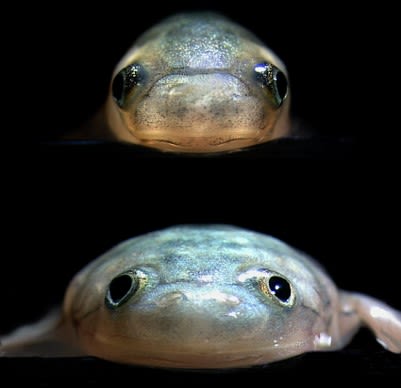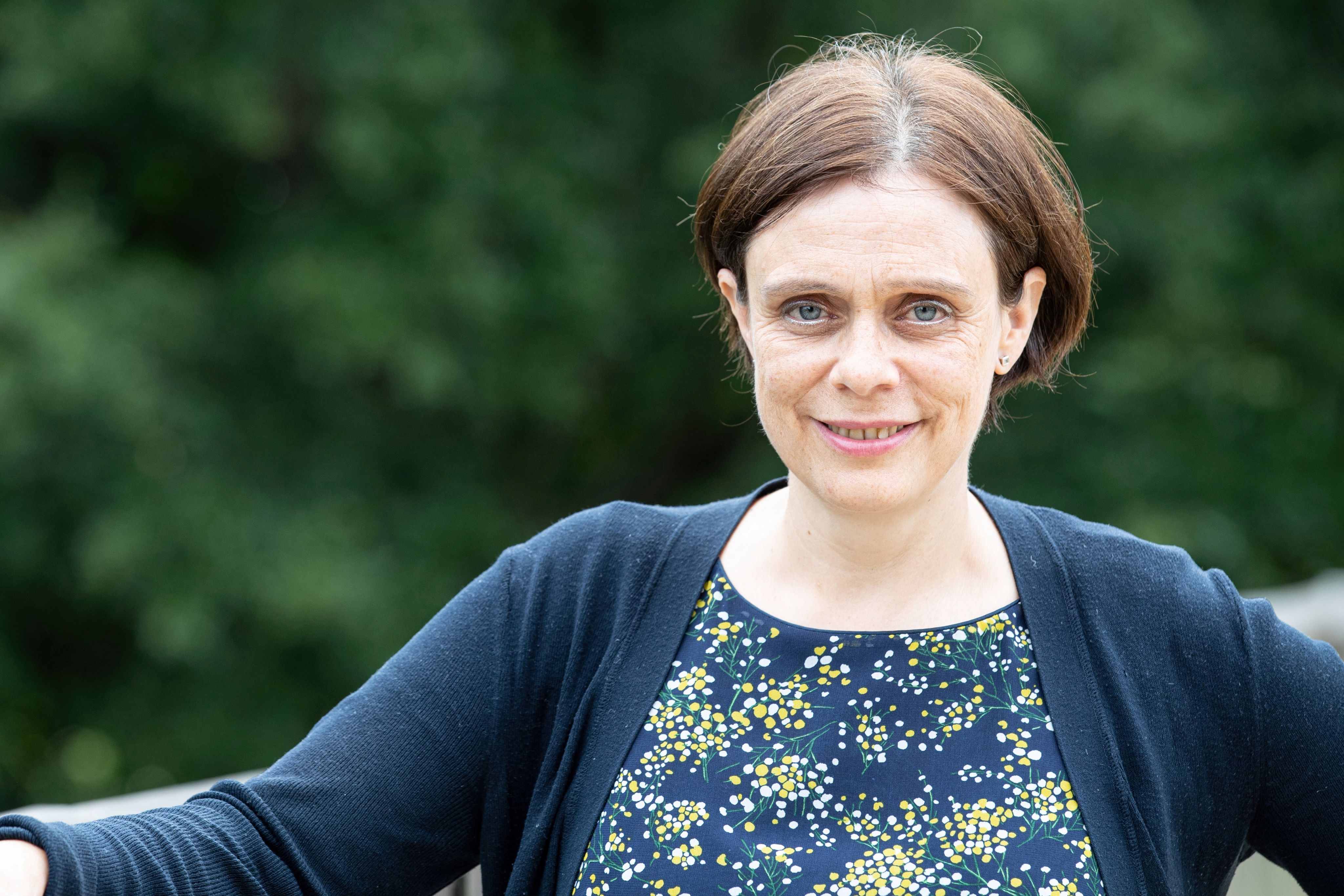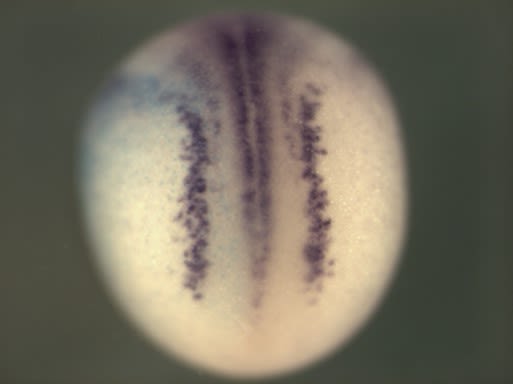Professor Anna Philpott
Fellows Research

Earlier this year, Clare Fellow, Professor Anna Philpott was appointed as the University of Cambridge’s new Pro-Vice-Chancellor for Resources and Operations, commencing in Michaelmas Term 2024. Anna was Clare’s Director of Studies in Biological Sciences for generations of Clare students as well as the Head of the School of Biological Sciences. Clare Review interviewed Professor Philpott about her research and the priorities of her new role.
Could you share insights about your lab at the Cambridge Stem Cell Institute and the key research areas you are currently focusing on?
I am a developmental biologist, fascinated with questions about how embryos grow and develop. In particular, I want to know why cells in the embryo decide to divide or alternatively to stop dividing and to adopt a mature functional state. I’ve been studying these processes for the last 25 years in my research group and my favourite experiments to do are those using very young frog embryos, ie early tadpoles. These early embryos develop rapidly outside the mother so we can really see what is going on. In addition, we can inject nucleic acids into developing embryos to turn genes on and off and see what effect this has on the fundamental processes of development easily, quickly and cheaply. More recently, we have also been looking at similar processes in embryonic mammalian stem cells that are also able to adopt a multitude of cell fates in the lab, with our particular interest being development of cells in the nervous system.
I am a developmental biologist, fascinated with questions about how embryos grow and develop.
Developing nerves (stained purple) in a Xenopus tadpole
Developing nerves (stained purple) in a Xenopus tadpole

What research findings are you most excited about and why?
Even though my work for decades has been investigating fundamental mechanisms of embryo development, in recent years we’ve been looking at how these mechanisms might go wrong in paediatric cancers. In particular, we have been interested in neuroblastoma, a devastating cancer of infants where cells in the human foetus or young infants, which would normally stop dividing and form nerves, instead get blocked along their normal developmental pathway, getting stuck as a quickly dividing immature “neuroblast” cell type. These rapidly dividing cells can form tumours in many parts of the body and the prognosis for many of these affected children is rather bleak. Indeed, even when children are cured of neuroblastoma using conventional chemotherapy approaches, they often have long-term metabolic and intellectual impairment issues from the treatment. Hence, there is a vital need to create kinder and more effective treatments for this devastating disease. We are very excited because we’ve used our fundamental understanding of development to work out that we can re-purpose adult drugs in a combination that slows cell division in such a way that they can trigger neuroblastoma tumour cells to stop dividing and form more mature nerve cells, which then get absorbed back into the body. We have still got a few steps to go but we’re very hopeful that we might be able to bring this approach to preventing neuroblastoma relapse into clinical trial in the next couple of years.
Xenopus craw-toed frogs
Xenopus craw-toed frogs
In addition to your research, you have also been Clare’s Director of Studies for Biological Sciences for several years. Could you share more about that experience and any particularly memorable students you've had during your time in the role?
This was a position I held for a couple of decades in Clare College and I really enjoyed it. There have been many memorable students, some for good reason, some for bad….. I have heard through the grapevine that I also made a memorable impression on some students, which I am happy about as long as the impression was a positive one!
In the course of my research, it has actually been very rewarding to bump into previous students who now have their own academic labs when I didn’t even know what they had gone on to do. It’s also good to know that we gave support to those students that weren’t destined to become academics but instead were able to use those analytical and project skills learned as a Natural Scientist to go out into the world to contribute to society in other ways. I have to confess, some of my favourite students are not those that were high achieving all along, but rather those that really found their footing while they were in Clare, blossoming over the years of their degree.
Earlier this year it was announced that you had been appointed Pro-Vice Chancellor for Resources and Operations for Cambridge University, congratulations. What do you see as the priorities for this role for the first 6 months?
As Pro-Vice-Chancellor for Resources and Operations, my role is to provide leadership across four principal areas: the prioritisation, distribution and use of resources across the University to optimise operational effectiveness; integration of academic planning with resource planning, and oversight of both the University’s change programmes and the University’s IT and digital capability. Working within a rapidly changing landscape of higher education, early priorities will be around delivering changes in systems and processes behind a number of significant operational areas, including finances, human resources and the University estate, to best place Cambridge to meet its academic needs moving forward. This is an opportunity to help ensure our long-term operational effectiveness and financial sustainability, which underpin our academic mission and are critical to allow the University to continue to thrive into the future. I’m excited to work with our community, furthering its priorities now, and helping make this world-leading institution even stronger for the next generation of students, staff and researchers. My approach will certainly be informed by all I have learned over the years in both the University and at Clare.


